X-COM Franchise Retrospective (Part Three)
By Patrick S. Baker
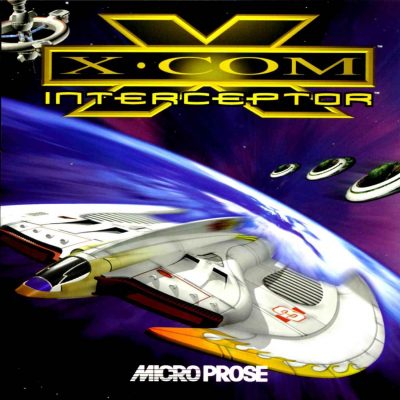 X-COM: Interceptor
X-COM: Interceptor
MicroProse and Mythos stopped working together, but MicroProse ended up with the X-COM license. Dave Ellis was assigned as chief game developer for MicroProse’s X-COM games. Ellis was the company’s in-house guru on the franchise, having worked in quality assurance and also, he had written strategy guides for the first two games. Inspired to expand the X-COM Universe by LucasArts’ Star Wars games, Ellis determined to create a game using a flight simulator engine and set the new sequel during one of the previous X-COM games. The idea was to let the player experience the events of an earlier game from a different viewpoint. This concept would become X-COM: Interceptor.
Throughout the development process Ellis and his team received fan input from what they referred to (perhaps not so politely) as the “Cult of X-COM” through an open online form and public e-mail. When fans learned that the game was going to be a flight simulator and not a turn-based squad-level combat game, accusations flew that MircoProse was just slapping the X-COM name on something as a marketing gimmick. MicroProse strongly denied this.
Interceptor was released on 17 June 1998. The game takes place between Terror and Apocalypse and was part flight simulation, part business simulation and part strategy game. 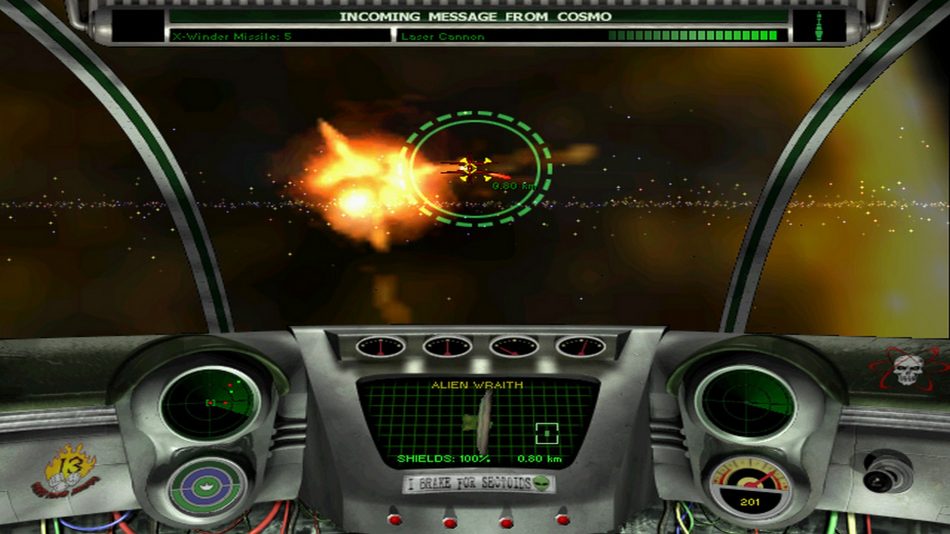
The game kept the same “retro-futurist” art style as Apocalypse. Interceptor got only middling reviews. Edge applauded the game’s “depth” and ingenious game play. However, GameSpot criticized the game for the campy look and feel and misplaced pop cultural references. Next Generation’s review was perhaps typical, saying the game was “a painless way to pass the time, [but] fails to bring anything new” to the game series. members of the “Cult of X-COM” stayed away in droves; Interceptor only sold a dismal 30,000 units.
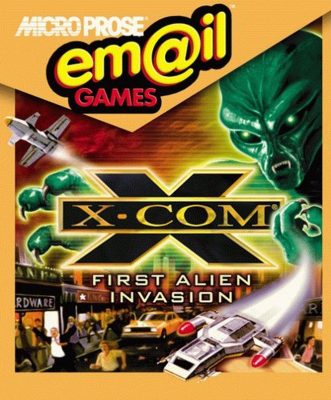 X-COM: First Alien Invasion
X-COM: First Alien Invasion
In an attempt to expand the reach of, and make some quick money off of, the X-COM franchise, on 30 September 1999 Hasbro Interactive released X-COM: First Alien Invasion, a two-player strictly play-by-e-mail version X-COM: UFO Defense.
The game had some minor revisions, which one reviewer called “simple” and “snappy”, which included a flamethrower for the humans and a greater variety of maps.
Woefully, Hasbro turned off the game’s dedicated e-mail servers after just a couple years when it shut down its Hasbro Interactive division, rendering the game unplayable overnight. This move caused some players of the game to call Hasbro executives: “disease-ridden idiots”.
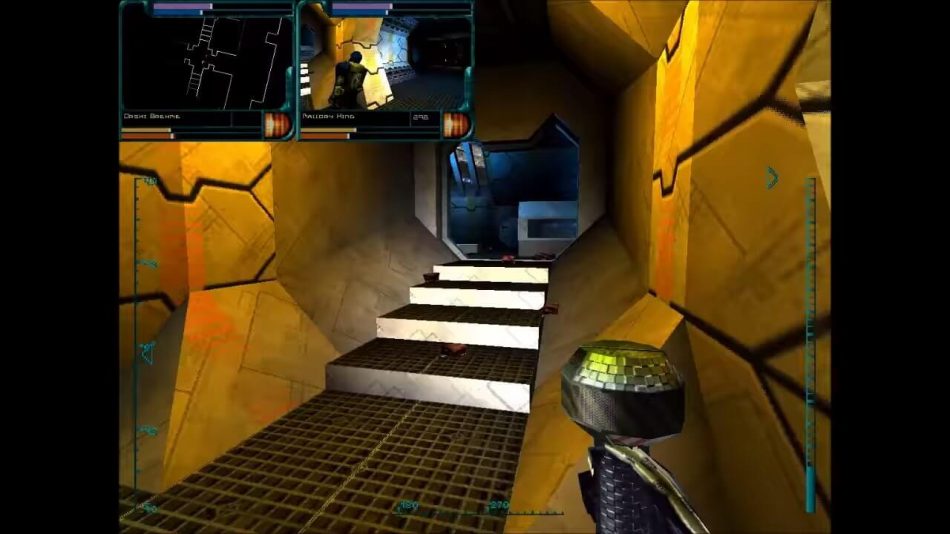
Cancelled: X-COM: Genesis and X-COM: Alliance
Immediately after the release of Interceptor, Ellis and his team went to work on X-COM: Genesis. Genesis was planned to be a return to the roots of the franchise. Genesis was designed with strategy, research and management, and tactical elements, like the first two games, but with real-time battles instead of turn-based combat. Accordingly, Genesis was to duplicate the Geoscape of the first two games. Also, the intent was to have the alien races from the first two games appear, requiring both land and sea missions. The scope of the game, on paper at least, was impressive. Sadly, as Ellis and others worked the new game, it became clear that Hasbro’s purchase of Spectrum Holobyte was going to end badly for games in development. The MicroProse Chapel Hill office, where Genesis was being developed, was closed in January 2000, abruptly ending the game’s development.
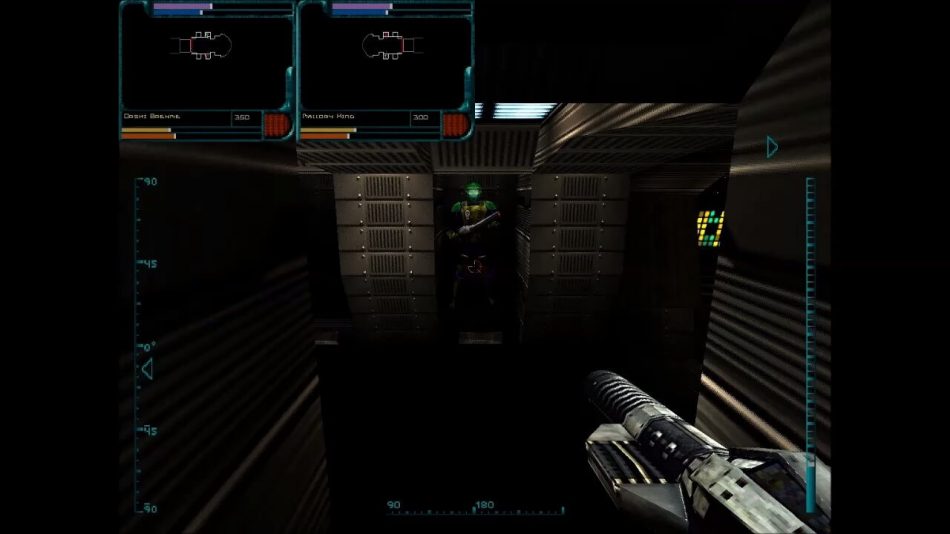
Being developed at the same time as Genesis, was another X-COM game, this one called Alliance. Alliance was to be a first-person shooter and was to have “strategy, adventure, and role-playing elements” as well. The game play would have highlighted team management and tactics. While playing through a first-person viewpoint, the player would have gathered and lead squads through a series of story-driven missions. The game was planned for a first half of 1999 release. The development of Alliance was troubled and linked to Genesis, so the game was cancelled at the same time as Genesis, in favor of a first-person shooter called: X-COM: Enforcer.
X-COM: Enforcer
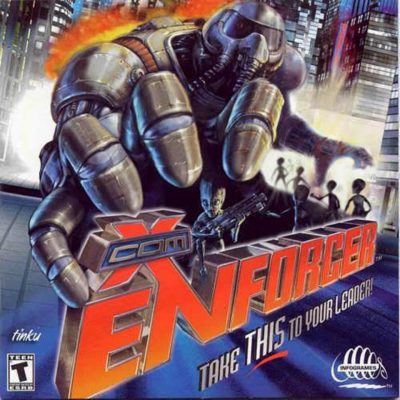 X-COM: Enforcer was the sixth game in the X-COM series. Enforcer was strictly a third-person shooter, without any strategy or management aspects. With the cancellations of both Genesis and Alliance, MicroProse transferred the resources and many of the art assets of those games to Enforcer. The game was released on 18 April 2001.
X-COM: Enforcer was the sixth game in the X-COM series. Enforcer was strictly a third-person shooter, without any strategy or management aspects. With the cancellations of both Genesis and Alliance, MicroProse transferred the resources and many of the art assets of those games to Enforcer. The game was released on 18 April 2001.
Set during the First Alien War, the game follows the actions of a combat robot named “Enforcer” as it battles alien forces in the United States.
Reviews for Enforcer were decidedly mixed. A positive review at IGN stated that the game was “pretty much nonstop action” and gave it a score of 8 out of 10.
The GameSpot reviewer was saddened, calling it a mindless shooter and was “disappointed” that game had not stuck to the “series’ roots as a mentally stimulating strategy game”, giving it a 6.4 out of 10. Computer Games Magazine was very harsh in its review, stating: “X-COM lovers will hate this game, and it’s clear the label was just tacked on as some lame attempt to cash in on the series’ brand appeal” and gave 2.5 out of 5 stars. Again, the X-COM fan base refused toembrace the new game and it was a sales flop.
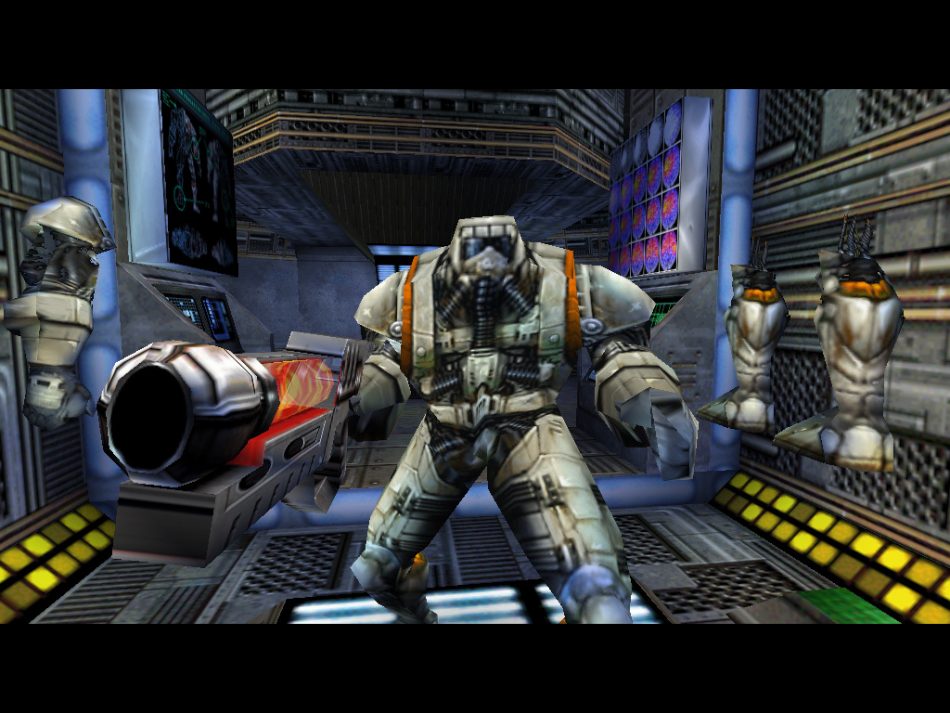
Hasbro Corporation had had enough of the video game world and sold Hasbro Interactive and all its properties to Infogrames, closing Hasbro Interactive’s doors for good. The X-COM games went into a ten-year hiatus.
Patrick S. Baker is a U.S. Army Veteran, and a retired Department of Defense employee. He holds Bachelor degrees in History and Political Science and a Masters in European History. His articles have appeared in Armchair General online, Military History, Strategy and Tactics, Modern War, Medieval Warfare and Ancient Warfare Magazines. When he isn’t writing, he is traveling with his wife, playing video games, or golf, or poker.
